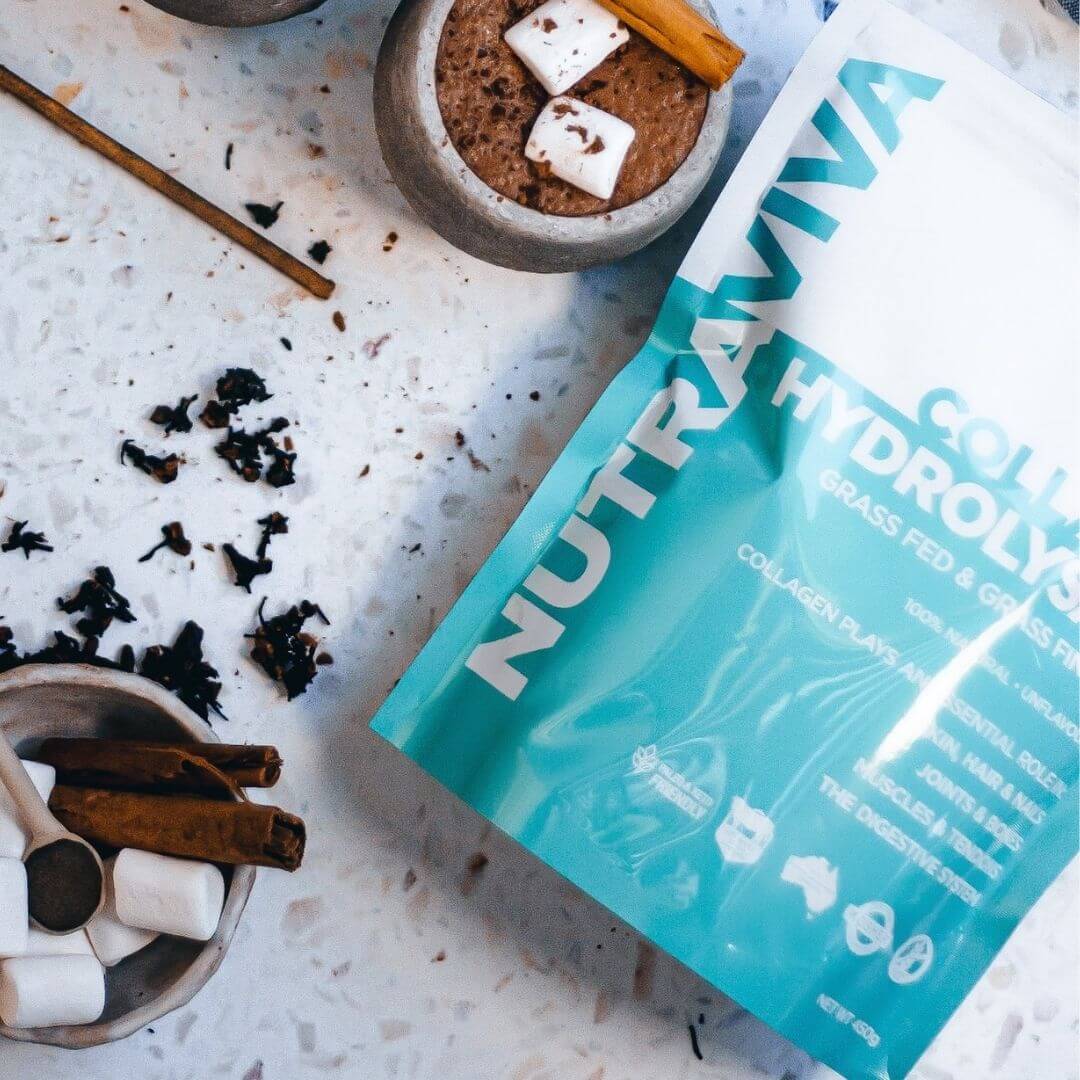Collagen Types Explained
At Nutraviva, we frequently receive inquiries about the types of collagen present in our premium collagen products. Understanding the benefits of collagen powder as a food supplement is a key factor in making informed choices for your health and wellness.
It is important to note that the type of collagen, being type I, II, or III, is not the most significant factor in choosing a premium quality hydrolysed collagen. One of the most significant factors is the amino acid profile, as collagen has an extremely high proportion of glycine, proline, and hydroxyproline. It is essentially these 3 amino acids that contribute to joint and bone health, skin, hair and nail health, muscle maintenance and recovery and injury recovery.
Types of Collagen in Our Products
Our Collagen Hydrolysate (bovine sourced) is a blend of types I and III collagen sourced from the dermal layer of the skin, bone, tendon, muscle, and connective tissue of grass-fed and finished cattle. Our Marine Collagen consists of type I collagen derived from the skin of wild-caught cod. Additionally, type II collagen, sourced from cartilage, is present in our bone broth powders.
Does Collagen Type Matter for Health Concerns?
The question often arises, does a specific type of collagen make a significant difference in addressing specific health needs? While our collagen powder contain different types, it's crucial to understand that collagen is absorbed by the body as a highly bioavailable protein source. The metabolism process remains the same regardless of the collagen type. This can be a point of confusion, especially when recommendations for a particular collagen type are made for specific health concerns. The plethora of blogs, media, and marketing promoting one source over another can add to this confusion.
Bovine vs. Marine Collagen: Unveiling the Distinctions
The main distinctions between bovine (beef) and marine (fish) collagen powder lie in sourcing, peptide size, preference, and price point. Marine collagen boasts a slightly smaller peptide size, making it particularly prized in the beauty industry. It also stands out for its lack of discernible taste and odour. On the other hand, beef collagen, while neutral in flavour and highly versatile, may have a mild taste and smell for those sensitive to certain profiles. Marine Collagen is an excellent alternative for those who prefer a non-bovine source, being naturally organic and wild-caught. The pricing factor also plays a role in customer decision-making.
Despite the differences in sourcing and characteristics, both of our bovine and marine hydrolysed collagen powders are 100% natural and offer similar health and wellness benefits. The choice between the two comes down to personal preference, dietary restrictions, and budget considerations.
Beyond Collagen: The Benefits of Bone Broth
When it comes to bone broth, it is important to highlight that the benefits of bone broth extend beyond its collagen rich source. While collagen plays a crucial role, the presence of minerals, glucosamine, chondroitin, hyaluronic acid, and vitamins adds to its holistic health benefits.
The health benefits of bone broth come from its long simmering time. Bone broth is low in calories and high in protein and minerals. 1 cup has around 10 grams of protein. That protein comes from nearly 20 different essential and non-essential amino acids. These amino acids help heal and protect our bodies in all sorts of ways. Plus, the calcium, magnesium, phosphorus, and many other essential minerals help flush out toxins and reduce inflammation in our bodies. Many of us don’t get enough of these minerals from other foods, so bone broth can be a good source. Combined with the many amino acids, these minerals can help speed up some of our body’s healing processes.
Disclaimer: As with any dietary choice, it's essential to strike a balance. A varied and balanced diet, coupled with a healthy lifestyle, is key to overall well-being. This blog post is for informational purposes only and does not constitute medical advice. Consult with your Doctor or healthcare professional regarding your individual health needs before making any changes to your health routine or starting any new dietary supplements.


